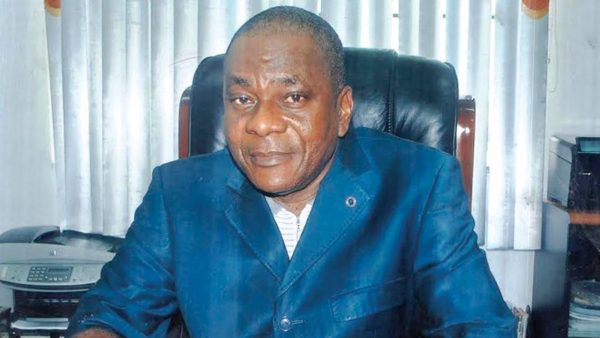By Kenneth Jukpor
This development is coming at a time advanced economies like France, ltaly, Germany, Canada, Britain and the Asian Tigers have announced systematic phased divestment from carbon fuel as part measures to embrace cleaner atmosphere through biofuel and other alternative fuel sources to drive their auto machines, plants and technologies.
Some oil and gas stakeholders have described these events as an attempt by some cabals in the nation’s political authority to fraudulently provide a life jacket for Dangote amid an obvious bad investment decision that creates room for corruption and neither the Ministry of Petroleum Resources nor the Nigerian National Petroleum Corporation (NNPC) has assured Nigerians that subsequent indigenous investment in refining would enjoy government’s fiscal support.
The Minister of State for Petroleum, Mr. Ibe Kachikwu’s assertion that the take-off of Dangote refinery would condemn other government refineries to scraps is also another cause for concern as industry watchers have asked why other refineries have to suffer such bizarre fate when Dangote’s refinery wouldn’t sufficiently cater for the needs of the nation; even the most populated country in the world, China with 27 refineries is still refining below its optimal capacity.
While speaking exclusively to MMS Plus at the recent Oil and Gas week organized by Oil Trading Logistics (OTL) Africa, the Managing Director of Ibanfo Oil and Gas Limited, Mr. Mamemo Ibru expressed fears that Dangote refinery may become a monopoly in the oil refining industry.

“My company is also planning on going into refining. We intend to develop a refinery in Calabar but if big refineries like Dangote’s come up with the huge resources, we have to be careful as there may be scarcity of crude sources and several other challenges. Luckily, I am from the Niger Delta so I could always find crude sources. We don’t want to jump into the deep end; it is safe to start from the shallow end,” he said.
Although he believed that when Dangote’s refinery began production, it would put Nigeria in a position to export refined products and also pave the way for other refineries to spring up because the international banks as well as the local banks would be more willing to give loans to investors in refineries if Dangote is successful. Ibru’s fears of a looming monopoly equally poses threat to investors in not just refineries but other petrochemical plants as well.
In a bid to get expert analysis on the opportunities and threats of Dangote’s refinery in the nation’s oil and gas sector,MMS Plus contacted the Chief Executive Officer of Sopetro Marine Limited, Mr. Mina Oforiokuma who dispelled fears that Dangote could become a monopoly in the oil sector.
“I don’t really see Dangote refinery becoming a drawback or leading to a monopoly in oil and gas refining. Rather, it’s a process that other investors could replicate and they need not be scared by the fact that they may not have the same level of investment as Dangote”
“Dangote has the first-mover- advantage because he got into the market first, but this doesn’t mean that it should portend ill luck for the other operators and investors within the industry”, he said.
However, Mina called on the Federal Government to show similar support to subsequent indigenous oil refinery projects and other petrochemical plants. “As the first private indigenous operator to set-up a massive $17miillion refinery in Nigeria, Dangote deserves to get the government’s support for the refinery which could be fiscal through the Central Bank of Nigeria (CBN) or other agencies. As long as other investors can prove that they have the technical capabilities, competencies and financial backing to establish such greenfield plants, the government should also endorse and support these investments”
Reacting to the Minister of State for Petroleum, Mr. Ibe Kachikwu’s position that older refineries would become scraps when Dangote’s refinery begins production, Mina said; “When Dangote refinery comes on stream, I don’t think the existing refineries should become scrap. I think this development would throw a positive signal to the international community. Several International Oil Companies (IOCs) would realize that there are opportunities for investment in the older refineries that already exist in the-country via Public-Private Partnerships (PPPs).
“In the last few years, the government had tried to bring in investors to operate the existing refineries on the basis of a PPP model in order to revamp the facilities and operate on a joint venture basis. Unfortunately, none of those efforts succeeded; I believe that after Dangote refinery kicks-off other national players would see the opportunities to invest in Nigeria. Again, we should be able to call on the government to give similar support as they provided for Dangote.”
Noting the absence of an antitrust law in the nation’s oil and gas industry, he reflected on the possibilities of the Dangote refinery leading to a monopoly, stating that the Nigerian populace need not be scared about a monopoly.
“There isn’t a level playing field for all parties in this sector. However, an antitrust law really doesn’t come to play here because I believe that it isn’t possible for one company to become a monopoly within this industry by virtue of the kind of free market enterprise we operate.
Mina, who is also a Governing Council member of the Nigerian Content Development and Monitoring Board (NCDMB), stressed that there were three other refineries already existing and Dangote’s refinery was going to open the window of opportunities for other players.
“The market is very large with annual consumption of approximately 18million tons of refined products. The nation’s daily average production today is just over 2million barrels of oil. In the last 20 years, there has been an impromptu allocation for local processing of 450,000 barrels a day. This is what NNPC puts aside for local refining, but only very little of that quota has been used. Obviously, Dangote refinery, though much larger in capacity, will commence with a refining capacity of about 200,000 barrels per day which means there is an extra 250,000 barrels for local refining. So, there really isn’t a dire need for antitrust laws. As refining capacity within the private sector increases, the government will most likely increase the allocation for local processing to gain from economies of scale. This development would see more refineries established with refining capacity in excess of 50,000 to 100,000 barrels per day. The opportunity is available for indigenous players right now that can go into reasonable joint venture partnerships with foreign investors who have the appetite and capacity to invest” he added.
Copyright MMS Plus.
All rights reserved. This material, and other digital content on this website, may not be reproduced, published, broadcast, rewritten or redistributed in whole or in part without prior express written permission from KINGS COMMUNICATIONS LIMITED.
 MMS PLUS NG – Maritime, Aviation, Business, Oil and Gas News Online Newspaper with coverage in Maritime, Oil and Gas, Aviation, Power and Energy as well as Financial News
MMS PLUS NG – Maritime, Aviation, Business, Oil and Gas News Online Newspaper with coverage in Maritime, Oil and Gas, Aviation, Power and Energy as well as Financial News










